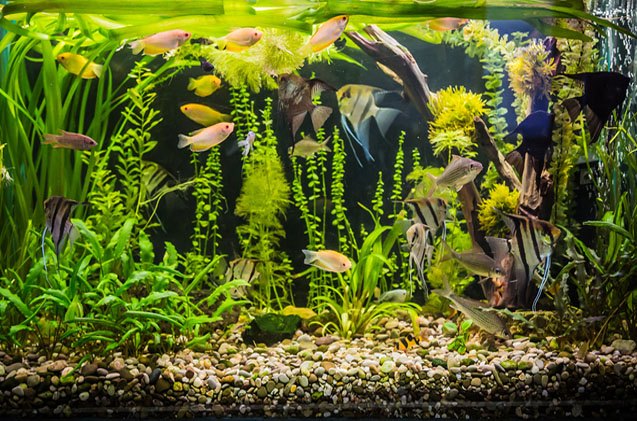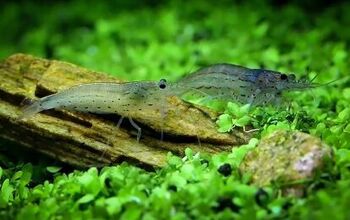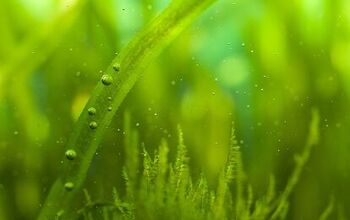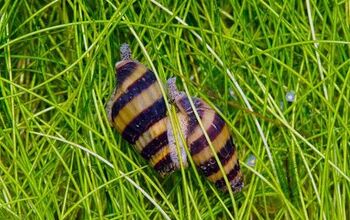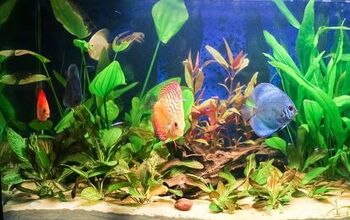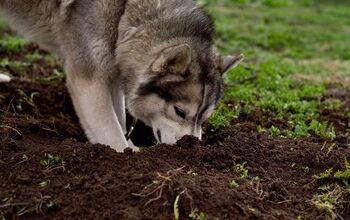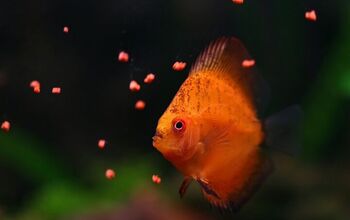Taking proper care of your aquarium is hard work – that’s why you need to bring in some extra muscle! Here are 5 invertebrates that you want on your freshwater cleanup crew.
When it comes to maintaining a thriving freshwater aquarium, there are many simple things you can do. One thing you should do is test your tank water weekly to make sure that your water chemistry remains stable. Installing a high-quality filtration system and performing routine water changes are important as well. In addition to these things, you might also think about adding some freshwater invertebrates to your tank to create a “cleanup crew.”
What is a Cleanup Crew?
A cleanup crew is simply an assembly of organisms that help to control the accumulation of detritus in your tank. Detritus is simply another word for the waste products that build up in the substrate of your tank. This includes uneaten fish food, fish feces, and decaying plant matter. A cleanup crew can be composed of various fish and invertebrates that are scavengers, naturally feeding on detritus. Snails are an excellent example of a scavenger that can be used in a cleanup crew – various species of shrimp and crabs also make good additions to the freshwater cleanup crew.
Related: Top 3 Substrates to Use in Planted Aquariums
Best Freshwater Invertebrates
There are many different options to choose from when it comes to freshwater invertebrates, but some of them are better than others. Here are our picks for the top five invertebrates to consider for your freshwater cleanup crew.
Nerite Snails
While some aquarium snails can become a nuisance, nerite snails are highly beneficial. These snails feed on algae and detritus but they tend to leave aquarium plants alone. Another benefit of nerite snails is that they cannot breed in freshwater so you don’t have to worry about them taking over your tank like some snails do. However, if you do have a saltwater aquarium, there are saltwater varieties that you can incorporate into your tank ecosystem as well.
One main reason that nerite snails are so popular is their docile and peaceful temperament. They will move throughout your tank cleaning up while avoiding creating any conflict with the other fish that you already own. This makes adding them to the take a much easier process with fewer challenges along the way. Plus, taking care of these snails is easy, so they are a great place to start when you are thinking about adding some invertebrates to your tank to help you keep things as clean as possible.
When adding your snails to the aquarium, keep in mind that it is almost impossible for a nerite snail to turn itself over if they find themselves upside down. For this reason, it is best to avoid simply dropping them into the aquarium and allowing them to float to the bottom. Instead, take the time to carefully place each snail in the tank in an upright position.
Their lifespan ranges from 1 to 2 years, and they can reach up to an inch in size when they are fully grown. You should have a minimum of a 5 gallon tank if you are going to add nerite snails to your little ecosystem, though. And these freshwater snails like having driftwood and rocks in their environment as well.
Amano Shrimp
These freshwater shrimp grow up to 2 inches long and they are known for eating all kinds of algae. They are incredibly hardy shrimp, making them a great choice for those who are new to fishkeeping and have no prior experience with shrimp care.
Amano shrimp are generally peaceful so they won’t bother your other tank inhabitants, and they may even feed on leftover fish food and other detritus. One thing to be wary of, however, is that large fish might eat these shrimp so keep them with smaller, peaceful species. Once you get to know these cute little shrimp, which can live anywhere from 2 to 3 years, you won’t find it surprising when you learn that they are one of the most popular types of shrimp among aquarium hobbyists. Many aquarium owners fall quickly in love with them due to their busy personalities. They add some interest to the tank as they race about the tank in search of food unlike many other bottom feeders that tend to move in a much slower manner.
They follow an omnivorous diet, and they require a minimum of a 10 gallon tank—preferably one that has plenty of live plants. Plus, these little guys will get along well with snails, other shrimp, and fish, so with the right combination of animals, you can easily set up a peaceful little community of varied species.
Related: Tips for Keeping Your Aquarium Water Quality High
Crayfish
Similar in appearance to small lobsters, crayfish can be a colorful and useful addition to the freshwater cleanup crew. Crayfish are scavengers that are likely to eat various types of detritus in the aquarium but they can be territorial with their own species so it is best to keep just one.
If you are determined to add a second crayfish, it is recommended that you only do so in an aquarium that is a minimum of 55-gallons. You will also need to ensure that there are plenty of hideouts available to offer them a place where they can getaway from one another as needed. Keep in mind, however, that there is no guarantee that your crayfish won’t end up fighting with one another and even potentially killing one another if a conflict arises. Appropriate hideout options include anything from a hollowed-out aquarium ornament to a simple piece of PVC piping.
If you’re thinking about adding crayfish to your tank, it’s important to know that you will need to set up your aquarium so that it will closely resemble the natural habitat of the crayfish; otherwise, they can become stressed out, stop eating, and experience anxiety. Thankfully, it isn’t hard to get the job done, as you can simply line the bottom of the tank with rocks that they can hide in, along sand that they can burrow into.
Your filter, water pump, or air pump should be able to mimic the current of a river. And, because these interesting creatures will eat plants, as well as algae, it’s best to add live plants that are fast growing to your tank. Beyond that, providing your crayfish with the appropriate pellet food will also keep them happy and healthy.
Fiddler Crab
The fiddler crab is a small, peaceful species of crab that generally grows no larger than two inches. These crabs will eat almost anything, though they do require some salt in the tank water in order to survive. These invertebrates are ideal for brackish tanks.
They can live anywhere from 2 to 3 years, and they need to live in a tank that is at least 10 gallons in size. The tank also needs to be set up with shallow water, and there should be areas of the environment that rise above the surface of the water as well—these crabs are semi-terrestrial, so they will need to be able to come out of the water as they please.
Fiddler crabs can live in a tank with live plants, however, there is a high likelihood that they will destroy the plants in your tank. For this reason, it is best to either place them with fast-growing plants that can withstand a little abuse or to stick with artificial plants when decorating your aquarium. If you are sticking to artificial options, you will need to increase the amount of oxygen coming into your tank with an air pump to provide the high oxygen levels that they are naturally accustomed to.
In terms of setting up your aquarium as a community, working with an expert who really knows these animals is recommended. You’ll need to have fish that are not only able to live in a brackish tank, but who can also swim fast enough to get away from a crab that might be aiming to attack. Otherwise, you can maintain a tank that solely houses fiddler crabs.
Freshwater Clam
These invertebrates act as living filters – they help to keep tank water clean by consuming detritus directly from the water column. Freshwater clams only grow about two inches long and they are fairly easy to care for as long as you don’t keep them with fish species that tend to feed on invertebrates (this includes pufferfish). They can also get along well with a variety of snails and shrimp, so you can have an entire cleaning crew to help keep your tank clean. Just bear in mind that they do prefer a pH of 7.0-8.0 or slightly lower, and a water temperature of 70-80°F, if not slightly cooler than that.
Pay careful attention to the number of freshwater clams in your tank, checking on them regularly. Freshwater clams do not live very long compared to other options on this list, with their average lifespan reaching approximately 6 months in the best cases. However, they can be stressed from minor changes in the tank which can cause a quicker death. If your clams die while buried down into the substrate, a common way that they like to ‘hang out’ in their tank, it may be harder to notice that they have passed. However, their decomposing bodies can cause serious issues with your water quality by causing ammonia spikes and potentially killing off other inhabitants in your tank. For this reason, you will need to be diligent and remove them quickly if they do pass away.
Keeping your freshwater aquarium clean can be a challenge since you have to maintain a balance between keeping your water quality high while also making sure your beneficial bacteria have the nutrients they need to thrive. Establishing a cleanup crew made up of freshwater invertebrates is a great way to improve the cleanliness of your tank without adding to your work load.





